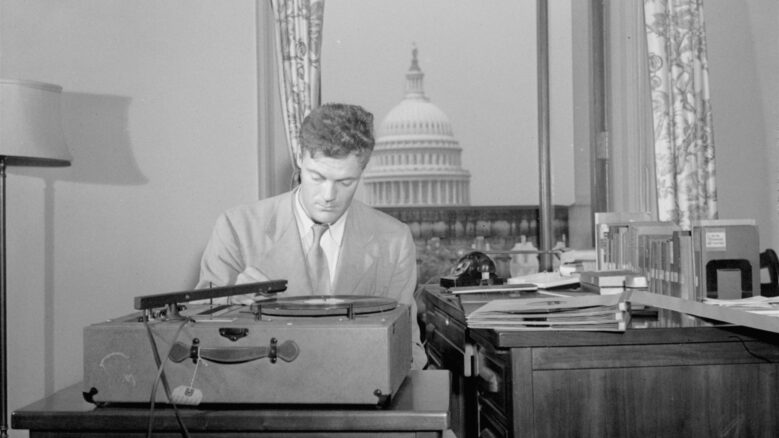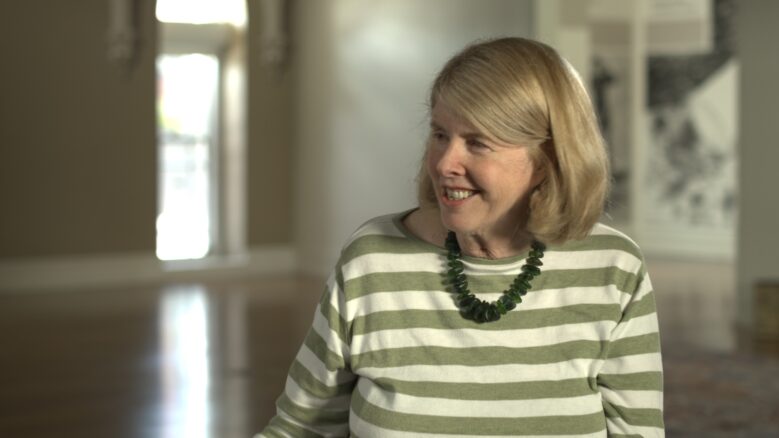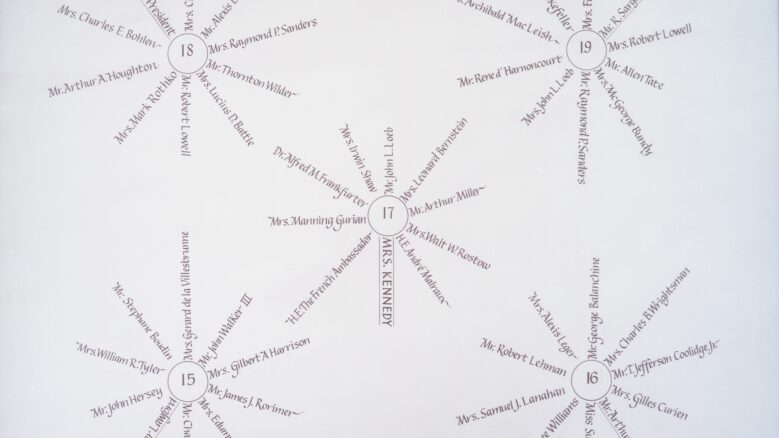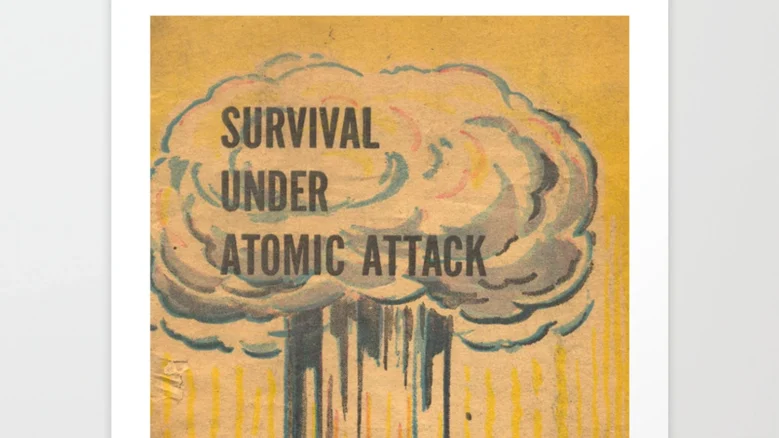Against the backdrop of 1964 Washington D.C., Robert Lowell wrote this timeless reflection on the contradictions between American idealism and American policy. Journalists Andrea Mitchell and Justin Worland, political commentators David Axelrod and Bill Kristol, scholar Sir Jonathan Bate, and psychologist Kay Redfield Jamison join host Elisa New.
Special thanks to our Humanities Advisors: Steven Conn, Paul Mariani, & Robert Pinsky.
Interested in learning more? Poetry in America offers a wide range of courses, all dedicated to bringing poetry into classrooms and living rooms around the world.
July in Washington by Robert Lowell
The stiff spokes of this wheel
touch the sore spots of the earth.
On the Potomac, swan-white
power launches keep breasting the sulphurous wave.
Otters slide and dive and slick back their hair,
raccoons clean their meat in the creek.
On the circles, green statues ride like South American
liberators above the breeding vegetation—
prongs and spearheads of some equatorial
backland that will inherit the globe.
The elect, the elected . . . they come here bright as dimes,
and die dishevelled and soft.
We cannot name their names, or number their dates—
circle on circle, like rings on a tree—
but we wish the river had another shore,
some further range of delectable mountains,
distant hills powdered blue as a girl’s eyelid.
It seems the least little shove would land us there,
that only the slightest repugnance of our bodies
we no longer control could drag us back.
July in Washington by Robert Lowell
The stiff spokes of this wheel
touch the sore spots of the earth.
On the Potomac, swan-white
power launches keep breasting the sulphurous wave.
Otters slide and dive and slick back their hair,
raccoons clean their meat in the creek.
On the circles, green statues ride like South American
liberators above the breeding vegetation—
prongs and spearheads of some equatorial
backland that will inherit the globe.
The elect, the elected . . . they come here bright as dimes,
and die dishevelled and soft.
We cannot name their names, or number their dates—
circle on circle, like rings on a tree—
but we wish the river had another shore,
some further range of delectable mountains,
distant hills powdered blue as a girl’s eyelid.
It seems the least little shove would land us there,
that only the slightest repugnance of our bodies
we no longer control could drag us back.
“July in Washington” from COLLECTED POEMS by Robert Lowell. Copyright © 2003 by Harriet Lowell and Sheridan Lowell. Used by permission of Farrar, Straus and Giroux. All Rights Reserved.

Robert Lowell was appointed Consultant in Poetry to the Library of Congress (the position which became Poet Laureate) after he won the 1947 Pulitzer Prize. The literal office overlooked the Capitol – but in a more abstract sense, the role moved Lowell from the more cloistered world of art and academia, into the twisting gyro of political power. Image courtesy of Associated Press.

Robert Lowell “saw both sides of America. Part of being a great artist in general, but I think also part of having very strikingly different moods, is to be able to see things in a complex way. Washington's important enough to him to write about it and important enough to be disillusioned by it and important enough to him to want something better for it.”—Kay Redfield Jamison, Professor, Johns Hopkins School of Medicine.

“It’s a commentary on the New Frontier, JFK, ‘the best and the brightest.’ Some people thought of the Kennedy government as Camelot,” says political commentator Bill Kristol. The worldliness of the Kennedy administration, and its larger circle of forward thinking 60s elites, can be seen here in (half of) the seating plan for a dinner at the Kennedy White House. Image credit: Papers of John F. Kennedy. Presidential Papers. White House Staff Files of Sanford L. Fox, John F. Kennedy Presidential Library and Museum, Boston.

“In some ways, we all die disheveled and soft. But the question is, during the journey, have you made a difference? There are figures throughout our history, and certainly in the period in which Lowell was writing, who did things that made us a better country.” —David Axelrod, Political consultant

The 60s were a heavy time politically. The Cold War between America and Russia created a broad unease, a feeling that any day might hold a massive escalation. Some did: one of the enduring achievements of the JFK administration was averting the Cuban Missile Crisis. Even though the Cold War never went nuclear, the nightmarish eventuality took hold over the popular imagination. Macabre government pamphlets, like the above, may have not done much to assuage fears.

“Confessional poetry, confessing your own mental state - this seems very, very private. But at the same time, Lowell becomes a kind of public poet,” says scholar Sir Jonathan Bate. Lowell, with John Berryman, Anne Sexton, Sylvia Plath, and others, is credited with popularizing a more personal, individually revealing poetry in the 60s. “The public and the private are always coming together in Lowell. And that to me, is his greatness as a poet.”